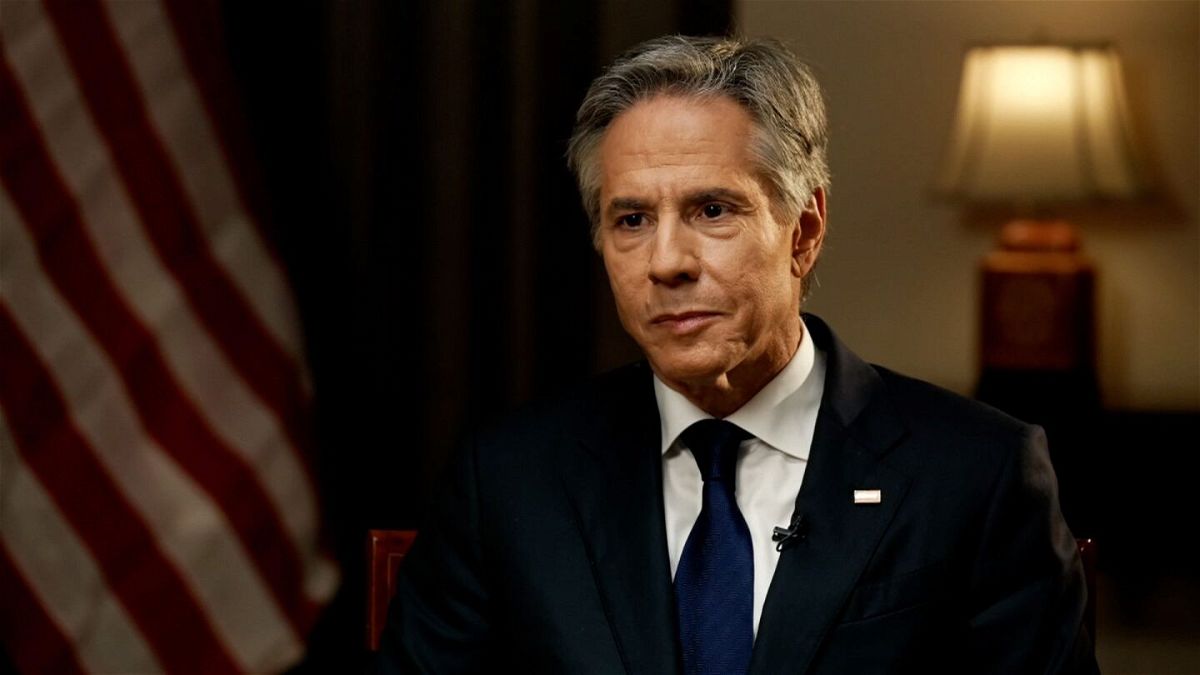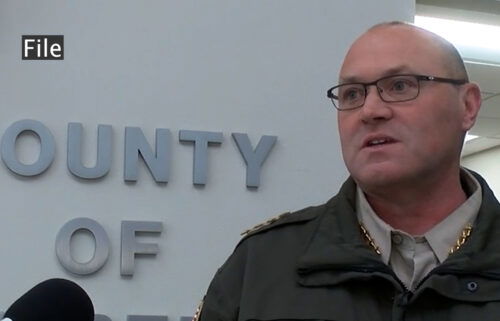Blinken tells CNN the US has seen evidence of China attempting to influence upcoming US elections

Originally Published: 26 APR 24 08:57 ET
Updated: 26 APR 24 11:12 ET
By Simone McCarthy, CNN
Beijing (CNN) — US Secretary of State Antony Blinken said the US has seen evidence of Chinese attempts to “influence and arguably interfere” with the upcoming US elections, despite an earlier commitment from leader Xi Jinping not to do so.
Blinken made the comments to CNN’s Kylie Atwood in an interview Friday at the close of a three-day to trip to China, where the top American diplomat spent hours meeting with top Chinese officials including Xi, as the two countries navigated a raft of contentious issues from US tech controls to Beijing’s support for Moscow.
Blinken said he repeated a message President Joe Biden gave to Xi during their summit in San Francisco last November not to interfere in the 2024 US presidential elections. Then, Xi had pledged that that China would not do so, according to CNN reporting.
“We have seen, generally speaking, evidence of attempts to influence and arguably interfere, and we want to make sure that that’s cut off as quickly as possible,” Blinken said when asked whether China was violating Xi’s commitment to Biden so far.
“Any interference by China in our election is something that we’re looking very carefully at and is totally unacceptable to us, so I wanted to make sure that they heard that message again,” Blinken said, adding there was concern about China and other countries playing on existing social divisions in the US in influence campaigns.
Beijing has repeatedly said it does not interfere in US elections, based on its principle of non-interference in other countries’ internal affairs. China or actors that are believed to be affiliated with Beijing have been accused of political interference in other countries, such as Canada.
Blinken’s trip — his second to the country in less than a year — is the latest in a string of high-level engagements that culminated in the Biden-Xi summit late last year and that have seen the two countries start to expand what had been severely diminished bilateral communications.
“We are (now) focused on areas where we’re working to cooperate, but also we’re being very forthright about our differences and that’s important if we’re going to avoid the competition we’re in turning into conflict,” Blinken told CNN.
Warning on support for Russia
Blinken also said he used his meeting to raise the Biden administration’s concerns about China’s support for Russia’s defense industrial base – and to stress that further action would be taken by the US on top of existing sanctions on more than 100 Chinese entities and individuals if such support continues.
The US believes that Chinese support is enabling Russia to ramp up production of tanks, munitions and armored vehicles – and to continue its onslaught on Ukraine.
“What we said to China is this – we’re going to take actions we already have, and if it doesn’t stop, we’re going to have to take more action, and you can anticipate as well, that other countries will (too),” Blinken said, adding that he raised the issue to both Foreign Minister Wang Yi and Xi. “We’re looking to them to act, and … if they don’t, we will.”
He also said that Chinese counterparts had not acknowledged the role of these goods in the war in Ukraine. Instead, they characterized this as trade with Russia and said Moscow’s success didn’t depend on China, Blinken added.
Beijing has previously slammed the US as making “groundless accusations” over “normal trade and economic exchanges” between China and Russia.
China has long contended that it maintains neutrality in the Ukraine war and has continued to present itself as a potential peace broker in the conflict, even as it has strengthened its economic, strategic and diplomatic ties with Russia since the war began.
Defending the right to protest
Blinken also defended the American right to protest, when asked about pro-Palestinian protests that have erupted across college campuses in the US in recent days amid mounting concern about the humanitarian crisis unfolding in Gaza.
Responding to a question referencing reports of use of antisemitic rhetoric at some of these gatherings, Blinken said there had been instances where there have been clear expressions of antisemitism, but “protests in and of themselves are not antisemitic.”
“What we’re also seeing is people, young people, people from different walks of life, who do feel very passionately, who’ve had very strong emotions about (the conflict),” he said.
He also stressed the importance of such expression in democracies, without explicitly noting the lack of such freedoms in China.
“In our country, and in our society and in our democracy, giving expression to that is, of course, something that’s both appropriate and protected,” he said. “But we’ve certainly seen instances where that has clearly veered from a totally legitimate expression of views and beliefs, to in some instances, yes, clear expressions of antisemitism.”
Blinken said that the administration listens to the American people and “takes their views into account.” But he did not explain how the protestors concerns would impact Biden administration policy.
Asked if the administration would consider stopping sending weaponry to Israel, because that is what some of the protestors are calling for, he said no.
“No we are focused on what’s in the interests of the United States. How do we best reflect both our interests and our values in our foreign policy across the board, whether that’s with Israel, or with any anyone else,” Blinken said.
Ending the war in Gaza
When asked about resolving the conflict in Gaza, Blinken said it was on Hamas to decide if they are going to allow a ceasefire to go forward or not, after the militant group refused to agree to multiple possible deals.
He also said tensions in the wider region seemed to be alleviating following apparent tit-for-tat airstrikes between Iran and Israel earlier this month that ratcheted fears that the war in Gaza could expand into a wider conflagration.
“I think now, hopefully we are not seeing that kind of escalation,” Blinken said, explaining that Hamas might have been looking at that escalation when it rejected Israel’s hostage proposal.
Blinken also said it could be possible to roll out a framework for the normalization of relations between Israel and Saudi Arabia along with a two-state solution proposal for Israel and the Palestinians before a Gaza ceasefire in place, marking a reversal in the order of events that US officials had previously expected to follow.
“Certainly that’s, that’s possible,” Blinken said. “Ceasefire or not we’ll continue to make these possibilities known. But in order to actually realize this, there’s going to have to be an end of the conflict in Gaza. And as I said, there’s also going to have to be a resolution to the Palestinian question, or at least an agreement on how to resolve it.”
Previously US officials said that the ongoing negotiations to secure a ceasefire had to reach an agreement before any further regional efforts could manifest.
Referencing the countries that came to Israel’s defense after Iran launched its April 13 aerial attack, Blinken said you could “see a path in the future where Israel is genuinely integrated in the region, where other countries are helping to make sure it’s defended.”
“But that also requires that (the conflict in) Gaza come to an end, and that there be a clear pathway to a Palestinian state. In that kind of future, Israel gets what it has sought from the start of its existence, which is normal relations with countries in the region,” he said.
Blinken cited the sustained US efforts to work towards normalizing relations between Israel and Saudi Arabia as part of a potentially reach a historic agreement to bring the Israel-Hamas war to an end.
“We’ve been working intensively to flesh it out, working with our partners, working – with European partners on this as well. And I think the more concrete it becomes, and the more it moves from the hypothetical and theoretical to something that’s actually possible, that’s real, then everyone involved is actually going to have to make decisions and make choices. And so we’re doing this work. And we’re trying to make it as real as possible,” Blinken said.
CNN’s Jennifer Hansler contributed reporting.
The-CNN-Wire
™ & © 2024 Cable News Network, Inc., a Warner Bros. Discovery Company. All rights reserved.


